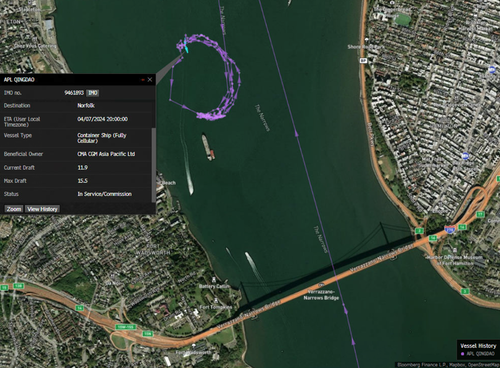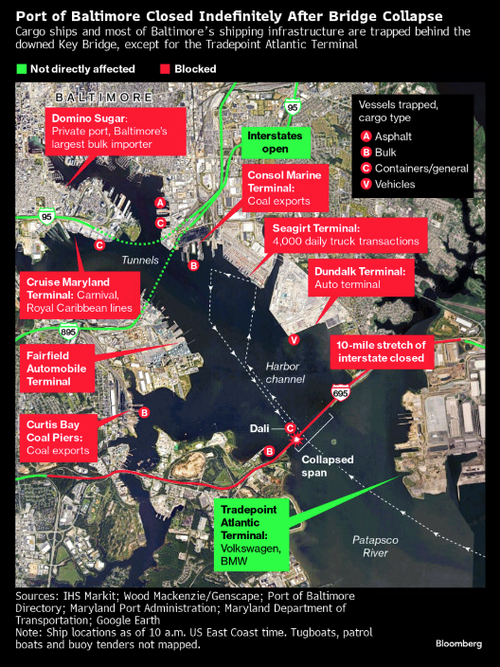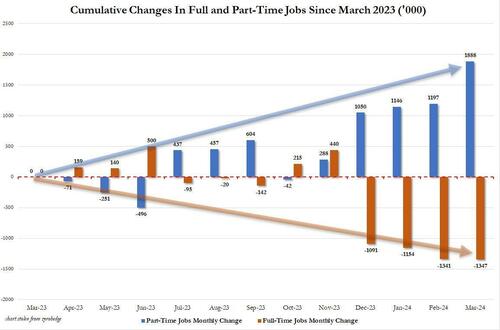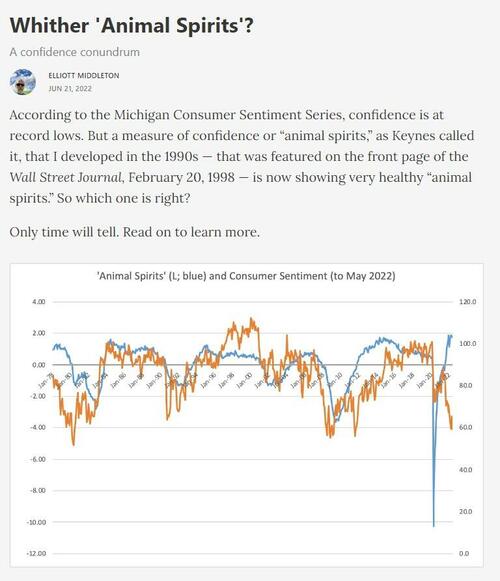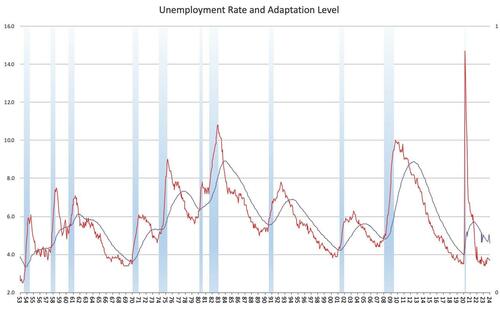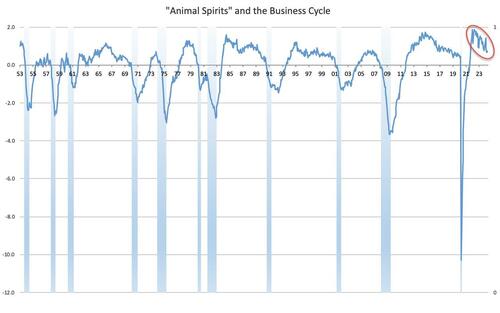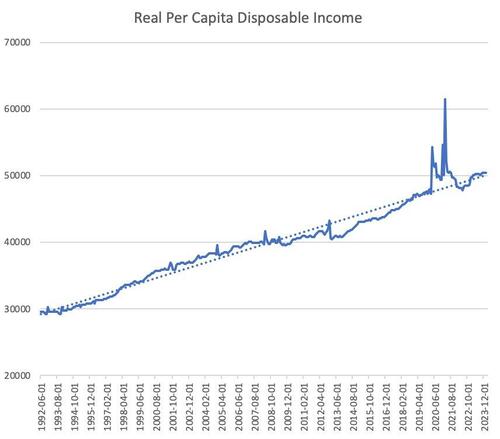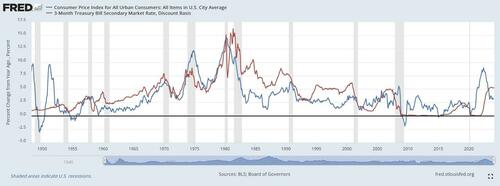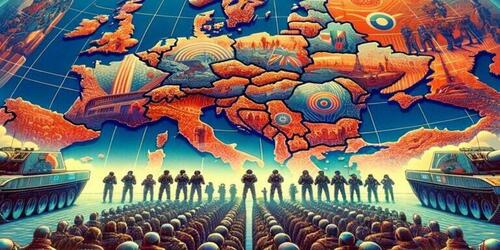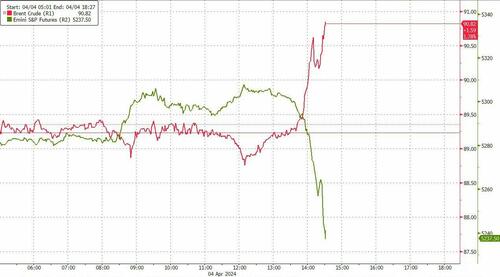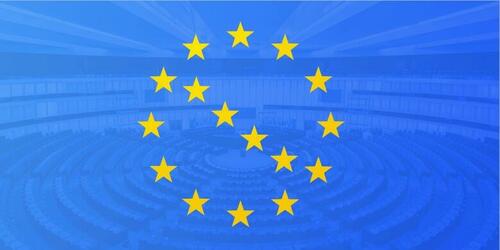Should we stop playing this game where the only winning move is not to play?
But of course we won't. And so we are stuck with this slow creeping towards the next World War with no reverse gear.
We have no way of knowing where exactly the conflict will start but is this important at this point when most countries are busy amassing tinder for the coming conflagration with no sane adult left in the room, especially in the West?
In this entry I will expand the analysis we presented in the March Deprcon Outlook of GnS Economics. Issues discussed:
- ‘Craziness’ driving the world towards WWIII is increasing.
- Geopolitics is dominating in the background, but people tend to forget it’s a two-way street and that there’s no “right or wrong”.
- Chaos sowed across the globe does not fit any standard analytical framework.
- Major escalations could be just around the corner.
The craziness deepens
On 3rd April, Presidents of Finland and Ukraine, Alexander Stubb and Volodymyr Zelenskyi, signed a defense pact with Ukraine. Finland has not signed such bilateral pacts with a war-going country since our President Risto Ryti signed a Ryti-Ribbentrop-pact in June 1944. The “pact” was actually just a personal letter from President Ryti to the leader of the Nazi-Germany, Adolf Hitler, where he vouched that he would not pursue peace with the Soviet Union (Russia). In exchange, Finland continued to receive military support and grain from Nazi Germany, which was crucial for her efforts to stop the ongoing major attack of the Soviet Union. President Ryti made the pledge under extreme pressure, as Finland was facing an imminent threat of invasion, and paid a heavy price. He was imprisoned for three years by a war crimes court (demanded by the Soviet Union) in 1946.
So, Finland signing a defense pact with a country in a direct conflict with Russia is utterly unheard-of, since WWII. It makes absolutely no sense for the security of Finland. It’s actually a threat to her security. Some could even call it an act of high treason. The most worrying part is the statement by President Stubb, when he was asked whether Finland would be sending troops to Ukraine. His answer was: “At this point there’s no need to send troops”. This opens a door for future deployment of Finnish forces to Ukrainian soil. What could possibly be the motive for this?
On Thursday, there was another major escalation, when the U.S. Secretary of State Antony Blinken announced that “Ukraine will become a member of NATO”. This was exactly what President Putin warned against in 2008, when he (allegedly) said to President Bush that if Ukraine ever becomes a member of NATO, the country would cease to exist. Why an earth are western leaders deliberately pushing against a known red line of the Kremlin?
Europe crumbles
The European security structure has been based on unification and stopping conflicts in their tracks through negotiations since WWII. It was highly effective during the Cold War, while we’ve seen one major regional conflict in Europe since the Second World War, i.e., the Yugoslav Wars fought from 1991 till 1999, caused by the fall of the Communist Bloc. In 2004, we had the Georgian conflict and in 2014, the Ukrainian conflict begun.
What was notable in both Georgian and Ukrainian conflicts, was that they were caused by NATO and the EU coming too close to Russian borders in countries the Kremlin considered unstable. Simple-minded people assume that geopolitics is about fairness and justice. It’s not. It’s about security, period. China, Russia and the U.S. play ruthless geopolitical games. Just think, what would happen if Mexico would try to join a military alliance with Russia?
Yet, what we know from history is that when the European security structure crumbles, the world should tremble in fear. WWI and WWII, the most destructive wars ever fought, got started from failure of politics in Europe. Now we are on the path to failure, yet again. The question is why? Two plausible explanations rise above others.
Geopolitical realities
The most plausible geopolitical explanation that I’ve seen on the Ukrainian conflict is that the U.S. wanted to eliminate the threat of the Eurasian alliance, which was forming between China, Europe and Russia. While it was a loose alliance, it was deepening. Russia provided ample raw energy, China was the production hub (factory) and Europe provided capital and know-how. Overtime, this could (would) have developed into a deeper alliance, which could very easily have risen to threaten the global hegemony of the U.S.
Dr. Zbigniew Brzezinski, one of the most influential geopolitical scholars ever lived (he passed away on the 26th of May 2017), noted in the conclusions of his magnum opus, The Grand Chessboard: American Primacy and Its Geostrategic Imperatives (1997), that:
The time has come for the United States to formulate and prosecute an integrated, comprehensive, and long-term geostrategy for all of Eurasia. This need arises out of the interaction between two fundamental realities: America is now the only global superpower, and Eurasia is the globe's central arena. Hence, what happens to the distribution of power on the Eurasian continent will be of decisive importance to America's global primacy and to America's historical legacy.
This aim was achieved with the onset of the Russo-Ukrainian war in late February 2022 (read update on 24/12/2022 on the controversy of who actually started the war). This could also explain, why the war continues. A peace between Russia and Europe would, most likely, re-start the construction of the Eurasian alliance. Perpetual war will guarantee that this does not occur, but this requires deepening escalation. We now seem to be on that road. However, the “Eurasian strategy” does not explain what is happening in the Middle-East.
Chaos as the aim?
Actions of Israeli Defense Forces (IDF) in the Middle-East have been highly escalatory of late. The strike on the Iranian embassy in Damascus cannot be considered as anything other than a deliberate act of escalation. Embassies are sanctuaries everywhere, and striking one simply cannot be a “mistake”. The IDF leveling hospitals is also nothing short of a war crime. Yet, the world stands idly by. Why? Moreover, on Thursday, several Iranian military bases were struck by a Jaish al-Adl, a Baluchi militant group, allegedly funded by the U.S., Saudi-Arabia and Israel. Iran has threatened to retaliate (understandably), which would lead to a deepening circle of escalation and, eventually, to a regional war, likely with very dire consequences. The United Arab Emirates also just announced that it will cut all diplomatic ties with Israel.
The deepening escalation, by Israel and some U.S. backed forces, makes absolutely no sense, unless the aim is to ignite a regional war. One could argue that Israel could be looking to crush all threats it sees in the region in a regional war. However, the devastation to the world would likely be cataclysmic, leading to wide-spread chaos. Who could possibly want that?
Divide et Impera
In December, I floated the idea of a ‘group-over-groups’ pulling strings above our democratic and supranational institutions. My analysis was based on the Occam’s Razor principle, which states that when you seek a solution to any problem, you should only include the least amount of assumptions. A dark agenda by a very powerful group is a theory with the least amount of assumptions. It simply ticks all the boxes. From my piece:
[…] behind every political decision is a force, which pushes it through. In the ideal situation, it’s the will of the people. A majority of the populace in a country want something, a majority of politicians want to get re-elected (and not to upset their supporters) and so they push the legislation through, more or less representing the will of the people. This is the ideal.
However, during the past three years, political leaders have made decisions that have been very detrimental to and/or objected to by the general populace on a global scale. These include multiple Corona lockdowns, money printing (leading to the inflation shock), two wars, sanctions hurting economies, the woke-agenda, and the de-farming agenda (see, e.g., this and this). Their combination makes no sense in a national-political sense, because they create havoc. It’s also difficult to trace all of them to the motives of any of the major hidden lobbyist groups, like the military-industrial complex on which U.S. President Dwight D. Roosevelt warned already in 1962.
I speculated that the aim of such a group could be Divide et Impera. This ancient principle, or strategy, translates as Divide and Rule (Conquer). The main idea is to create such large divisions between political parties, or whatever dominating parties, so that they cannot rise to challenge the rule subjected upon them, usually by an outside force. Ancient Romans used this strategy many times to enforce and cement their rule over their provinces. The strategy has four key elements (from Wikipedia):
- Creating or encouraging divisions among the subjects to prevent alliances that could challenge the sovereign and distributing forces so that they overpower each other.
- Aiding and promoting those who are willing to cooperate with the sovereign.
- Fostering distrust and enmity between local rulers.
- Encouraging meaningless expenditures that reduce the capability for political and military spending.
We
can see all in play in our western societies. Ordinary people have been
divided based on artificial conditions, like vaxed/un-vaxed,
pro-Ukraine/pro-peace, woke/conservative and those supporting all
government actions vs. those opposing (this latter has existed in human
societies for quite a while). Those that obey the agendas set by
governments have been given full access to societies (during, e.g.,
Corona times), while those criticizing have been silenced and even
imprisoned. In Europe, leaders of countries that followed the orders of
unelected leaders of the European Union (Commission) received high
positions in the EU power structure, while dissidents are discarded and
even their careers sometimes destroyed. All local rulers, who rise to
challenge the commands by the EU (like Victor Orbán in
Hungary), have been defamed and even blackmailed. European nations have
decades long histories of neglecting their defense spendings and now
propositions are being made to fund the re-armament of Europe through
the EU. “Meaningless” expenditures have of course been on the rise in
western societies for a very long time.
When we subject the strategy of Divide et Impera to policies enacted across the globe, we can seen similar developments everywhere. This enforces the view that there could actually be very an influential ‘group-over-groups’ spreading its agenda of chaos (Divide et Impera) across the globe.
Conclusions
Forecasting has become extremely speculative in recent years. This is because the developments we are witnessing do not fit to any standard analysis framework. It’s also really strange how intelligent people seem to have forgotten the brutal realities of geopolitics. Fairness and “right and wrong” simply do not fit into it, but that’s how the western propaganda is marketing things currently (Russia naturally has it’s own war propaganda). The propaganda operations run in the West since the start of the Russo-Ukrainian war have been so effective that even Josef Goebbels would have envied them.
The question we should be asking is: while geopolitical realities are dominating developments, at least in Ukraine, is there a global agenda of Divide et Impera being played in the background? If there is, who is pulling the strings? This need not be so, but if we do not ask these questions, we risk being played by forces seeking our demise. This is no time to be small-minded and/or naive.
The most frightening scenario is that the wars in the Middle-East and Europe will flare up within the next few months (or even weeks). Rallies in gold, oil and stocks of weapons companies suggests that something is up. Be prepared for extreme events.
